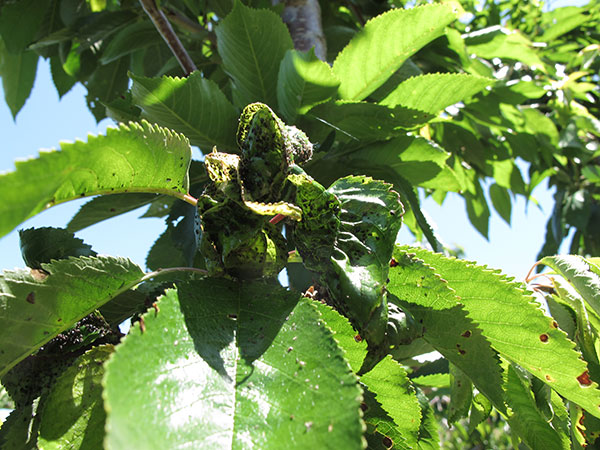Black Cherry Aphid
HOSTS
- Cherry
DESCRIPTION
Black cherry aphids suck sap from the phloem vessels and reduce tree vigor. They overwinter as black eggs on cherry trees, and hatch in spring when leaves start to emerge. The backyard orchardist can usually ignore aphid infestations unless the populations are extremely high, growth of young trees is being stunted, or black sooty mold is staining the fruit.
BIOLOGY
Black cherry aphids overwinter as eggs on twigs and fruit spurs. They hatch just before bloom. Later in the summer when temperatures remain hot, aphids form wings and migrate to mustard family weed hosts during summer. In late summer, winged aphids return to cherry trees to lay eggs.
SYMPTOMS
- Curled and sticky leaves
- Black sooty mold
- Honeydew
GENERAL MANAGEMENT
Delayed dormant oil will usually take care of this aphid. Apply when buds begin to swell in spring. Numerous beneficial insects including lady beetle adults and larvae, lacewing larvae, and syrphid fly larvae help suppress aphid populations, so conserve and protect these natural enemies. If this insect is a problem later in the summer, insecticidal soap and/or 1% horticultural oil will take care of it.
Monitoring:
Look for shiny black eggs in early spring at the base of buds. After bloom, look for small colonies forming on the undersides of leaves. To speed up this process, shake limbs over a tray or paper and inspect dislodged insects.
Insecticides:
- Residential: insecticidal soap°, horticultural mineral oil°, azadirachtin°, malathion, or gamma-cyhalothrin
- Commercial: Click Here



